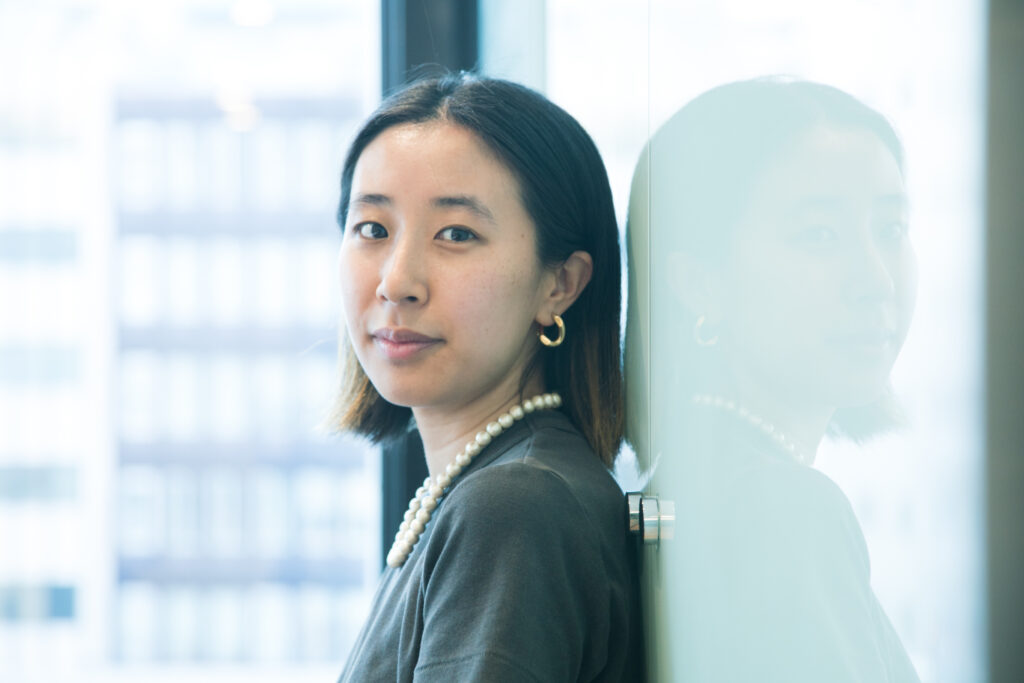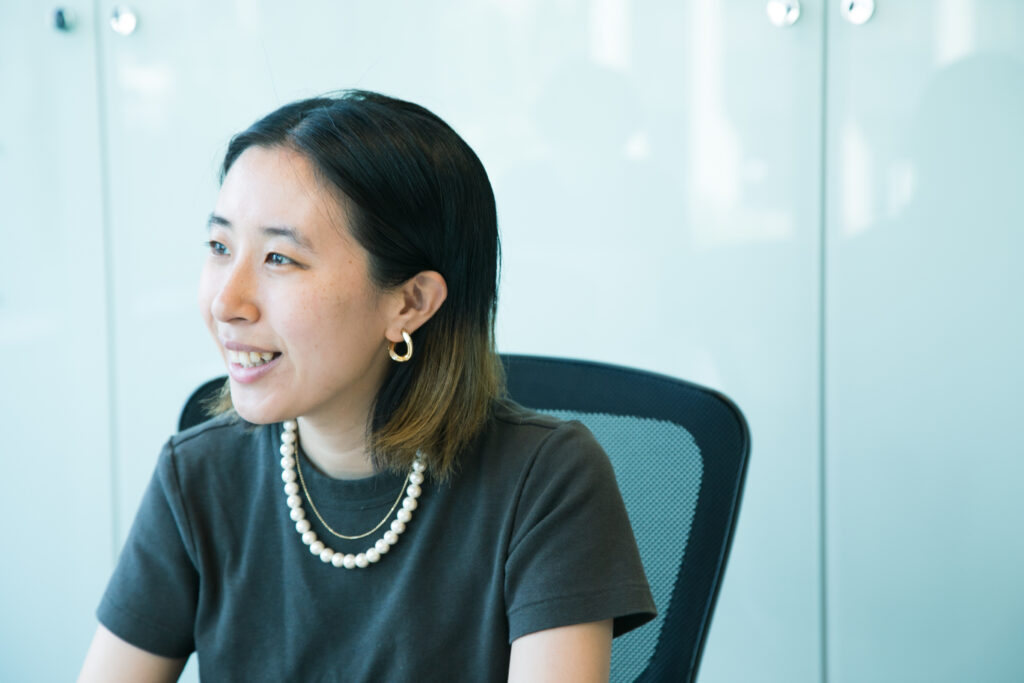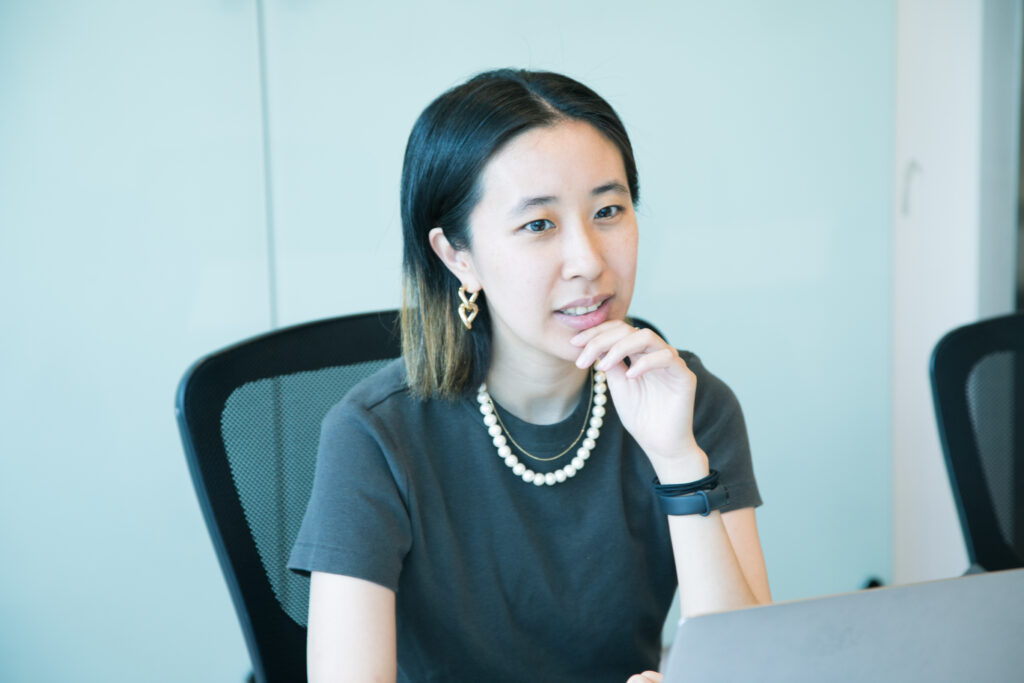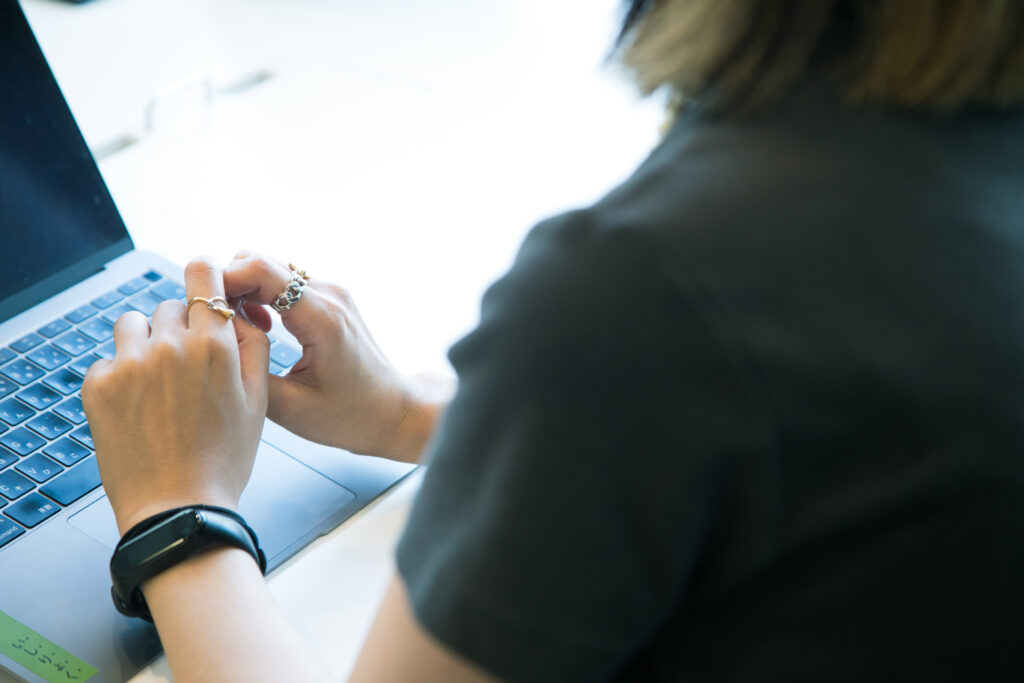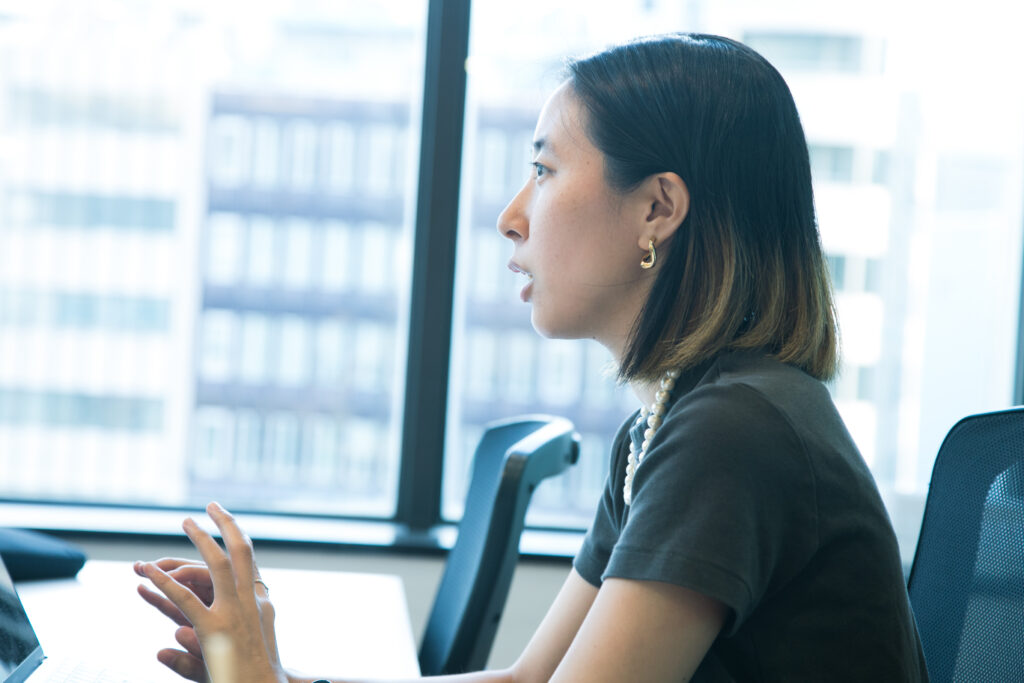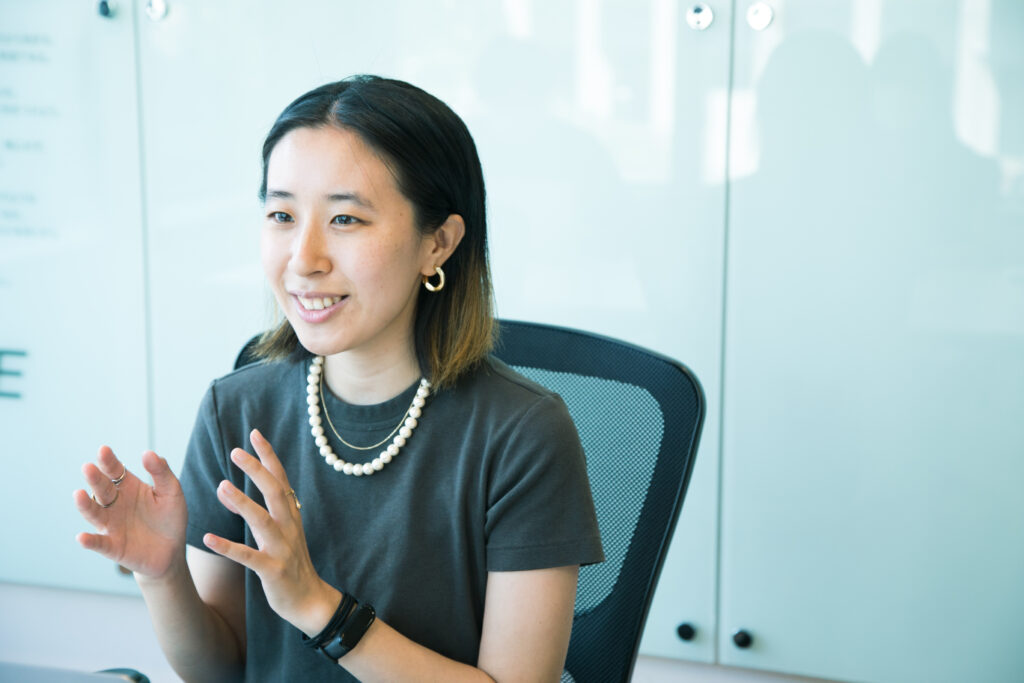Initially kick-started by CAMPFIRE, the biggest crowdfunding platform in the country, GoodMorning is a service specializing in social good. With the mission, “To create a setting where anyone can have a hand in social change,” GoodMorning strives to manifest “A society where no one’s pain is ignored” through their service. Momi Sako was involved in establishing the platform, and when it split off from CAMPFIRE in 2019, she became the CEO.
As a crowdfunding platform for people who confront problems in society, GoodMorning has supported various fundraising efforts to solve such issues thus far: Study Coupon, an initiative to provide children with educational opportunities in Shibuya ward, the Tattoo Trial project, the first crowdfunding project for trial fees in Japan, and DAWN, a project based on resolving issues in fashion in cooperation with Itochu Corporation and Itochu Fashion System.
The other day, GoodMorning announced that they’re dissolving this fall and that CAMPFIRE will operate the company again. Because CAMPFIRE will be running the company, the content itself isn’t subject to change. Following this change, Sako is leaving GoodMorning’s team in August and moving to CAMPFIRE’s human resources department. She plans to take on internal matters in the organization, such as the diversity of the employees. We asked Sako, who has decided to embark on a new path, to reflect on her past and speak on what kind of social good is required today.
——When did you first become interested in social problems?
Momi Sako (Sako): Around the time I went to a public middle school. My school district was in an area with a comparably striking economic disparity. Kids from financially stable households could choose to go to expensive private schools, but some kids weren’t from such families, so they could only apply to low percentile schools. I applied to numerous challenging, high-level schools, and even as a kid, I felt like it was unfair how one’s economic status narrows down one’s options.
——You’re right. Aside from applying to schools, in general, it’s problematic how people’s opportunity to get an education is taken away from them because of their household’s financial status. So you became interested in that first; which social problem did you develop an interest in after that, in high school?
Sako: I was looking for something to do outside of afterschool activities, school, home, or cram school, and found out about Katariba, an NPO. I joined their events, went to the area struck by the Great East Japan earthquake to volunteer, and partook in activities involving social issues. In high school, some older students were involved in environmental issues and NGOs. Rather than doing it for my future, I challenged myself to do things I was interested in and wanted to do.
——It seems like many older students at your school were acutely aware of social issues.
Sako: At International Christian University High School, where I used to go, we had numerous discussions and debates during class. We had opportunities to argue about topics like capital punishment and married couples choosing separate surnames. Debating with my classmates gave me the impetus to think, and it still informs the work I do today.
Moreover, we attended a trial for class outside of the school campus, which I’ll never forget. The teacher asked us for our thoughts, and we talked about how we would’ve judged the defendant. In response, the teacher pointed out, “Why is it from the perspective of the judge? Did you think about how you would’ve felt if you were the defendant standing there?” I suddenly realized we had unconsciously taken the side of the powerful. It made me conscious of how I should hold my perspective. I still candidly talk to my friends from high school about politics and social issues on LINE, as though we were talking about what film we’ve watched.
——Did you join CAMPFIRE after you enrolled in and then graduated from college?
Sako: No, after I graduated, I joined a clothing company. Until then, I had been involved in and studying various social issues, but I couldn’t think of a workplace that would allow me to continue doing that. Although I was happy to join the company, I ended up quitting in around nine months. Once I started working, I reconsidered that perhaps there was a job where I could continue doing what I had been doing, which was related to social issues. Just then, a friend I used to volunteer with during college told me about how GoodMorning was being founded. I joined CAMPFIRE because I wanted to work for them.
Shedding light on buried social issues, and making a change every day without giving up
——What aspect of GoodMorning appealed to you?
Sako: I felt like I could use a positive attribute of mine, which is that I’m interested in many issues, to good use if I worked for a platform that supports people trying to solve social issues without limiting myself to one issue.
——Could you talk about the work GoodMorning does?
Sako: One of the project categories shown on CAMPFIRE is “social good,” and the projects in that category are posted on GoodMorning. The services and system are the same as CAMPFIRE, but the handling fee is 9% instead of 17% because we want to minimize the user’s costs. A full-time planner for social good supports each project.
——What are some of the obstacles you face as someone who runs the platform?
Sako: It gives me hope to see so many people continuing their activism without giving up, as well as those who support said activism, even though there’s a lot of negative news today. However, there’s an increase of people struggling to run a business because they’re not secure enough under the pandemic. Many of them have started a crowdfunding campaign to cover their financial losses. I think it’s wrong that struggling people have to fend for themselves while the government’s not supporting them enough, which they should be doing.
——Some forms of support are necessary, after all.
Sako: Crowdfunding hasn’t fully reached its potential yet. I hope to shed light on issues that haven’t been able to raise sufficient funds yet.
——There’s a PR side to crowdfunding, but isn’t it difficult to spread awareness on social issues?
Sako: Most crowdfunding projects get supporters from social media, and it’s great that those who relate to [a project] could support it. But on the other hand, this is a disadvantage for initiators who have no influence on social media. As a platform, we’re still looking for ways we can help to gain more supporters.
——How do you get people to pay money to solve issues?
Sako: In most cases, information such as a crowdfunding project’s description on their project page, how an issue will be solved by whom, and where the money is going become the main focus. The underlying social issue and why it arose to the point that it requires fundraising via crowdfunding doesn’t reach [the audience]. We’re figuring out how we could aid in communicating such circumstances. We want to do the best we can to support the initiator to make sure they can focus on what they need to.
——The priorities become reversed when you have to spend time on PR even though you need funding for your activism.
Sako: In some cases, yes. Also, I don’t think it’s possible to fix social issues by crowdfunding just once. One of the challenges is how long you can support it. The longest a project can be on [the website] is 80 days, so it’s hard to keep up with it afterward. If someone becomes interested [in a project], I’m sure they’ll have more opportunities to learn about social issues or activities as long we could create a lasting relationship. At GoodMorning, we have a monthly supporter option, in which [the supporter] can donate monthly. We sometimes introduce this option to the initiator.
——Which project impacted you out of the ones you’ve helped with so far?
Sako: It’s tough to pick one, but the Tattoo Trial project and a project that aims to allow married couples the option to have different surnames were impressive. Many people think the only way to change the system or law is to vote indirectly for politicians during elections. However, you could raise funds through crowdfunding and submit a petition or have a big case in court to change the system. It means so much that some individuals discovered they could support such things. Instead of giving up when [a candidate] loses an election, I hope to see an increase of people working to change things little by little every day.
——Are there any projects you’re interested in?
Sako: There have been a lot more projects about periods and sex education recently. Some projects hand out sanitary products, and some build study kits for those who’ve had their first period. The scope is wide-ranging, from big ones to those initiated by students. I’m so happy we’re becoming more able to discuss periods or sexuality in an open space.
A role model who ensures people’s ability to be a front runner in any working environment
——As the initiators and projects become more wide-ranging, do people start demanding the same quality in the company itself?
Sako: Social issues I don’t know about pop up every day. When I hear about something for the first time, I look it up or have a study session. Everybody has different fields of interest, so we deepen our knowledge while keeping each other updated. I think about diversity in terms of working too.
——In an interview you gave previously, you said you didn’t think you would have children for a while upon being appointed the CEO at 25 years old. What do you think about the balance between work and raising children now?
Sako: When I first got asked to become the CEO, I thought I couldn’t be pregnant for a while. But afterward, I changed my opinion: “If I think I can’t become pregnant because I got chosen to do this job, then others will think the same.” It’s not great to become that type of role model. I thought I would get in trouble if I said, “I’m going to be on maternity leave” because I had just got assigned the position. But it’s not right to get in trouble for that. If a man were going to have a child, he wouldn’t be like, “I’m going to decline the promotion,” right?
I feel as though many women feel like they must achieve a career before giving birth or that women need to go at full speed to get to a place where they could take a break. Only those who have given 100% before giving birth could secure a job down the line; isn’t that wrong? I want to create an environment where both women and men could choose how to work flexibly depending on where they are in life. At CAMPFIRE, many women employees have returned from their maternity leave. Some employees are currently raising children.
Because CAMPFIRE is reintegrating GoodMorning, I hope to make an environment where everyone can work comfortably for a long time.
——When GoodMorning is going to be operated by CAMPFIRE again, will there be any changes in the service?
Sako: There will be no changes in the content, workers, handling fee, and such. You’ll be able to use it just the same. Our challenge as an independent corporate group has come to an end, but we’ll continue to offer our help to tackle social issues, with “A society where no one’s pain is ignored” as our vision.
——Lastly, you’re moving to CAMPFIRE’s human resources department in August. What’s next in store for you?
Sako: I wish to create a work environment where both men and women could work at a good pace. The number of men taking paternity leave is still low nationwide, and women have the role of raising children and taking care of the house. I doubt women’s work performance could reach its full potential this way. Also, everybody has things that take up their time outside of work, such as sickness, caregiving, and hobbies. I want to build an environment where people could take a break without worries and work after said break.
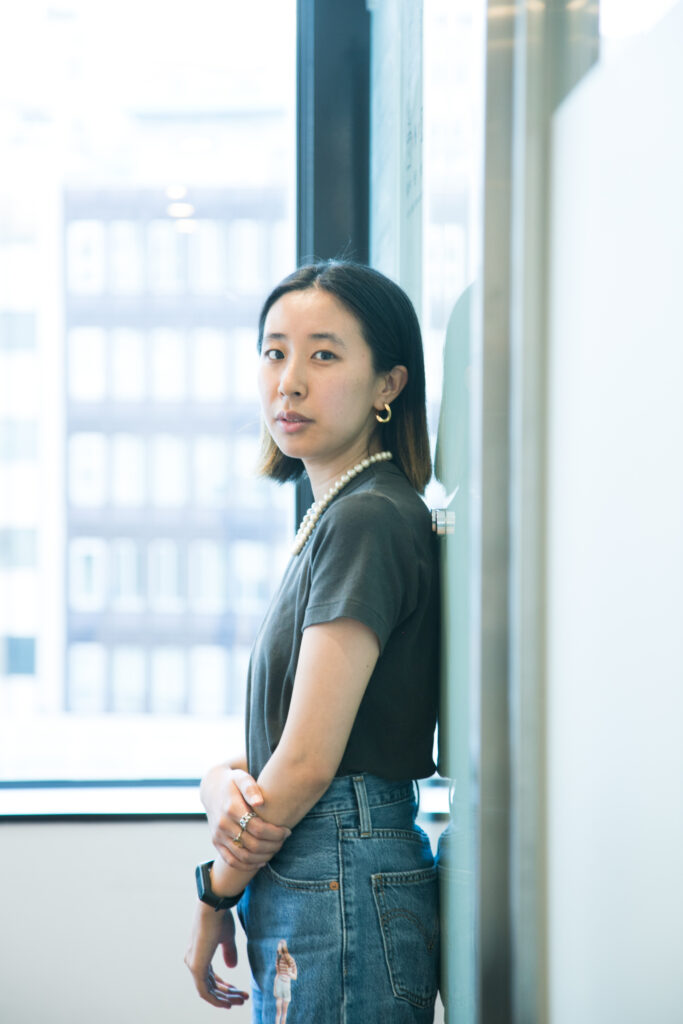
Momi Sako
Born in February 1994, in Tokyo. After graduating from the International Christian University, Momi Sako worked at a clothing company and joined CAMPFIRE in January 2017. As one of the founding members of GoodMorning, a crowdfunding service specializing in social good, she has engaged in supporting several hundred projects. She was appointed as the chief business officer in January 2018. GoodMorning branched off in April 2019, and then she was made the CEO. Some examples include Study Coupon, a project made through a collective impact like Shibuya ward and NPOs, Japan’s first crowdfunding for trial costs, domestic groups providing free meals to children getting insurance, and emergency aid for domestic and international natural disasters. Sako is striving for a society made up of solidarity from each individual via crowdfunding. She is also working on solving social issues and spreading awareness. In August 2021, she is transferring to the human resources department of CAMPFIRE.
https://camp-fire.jp/goodmorning
https://camp-fire.jp
Twitter:@SAKOMOMI
Photography Mayumi Hosokura
Translation Lena Grace Suda

